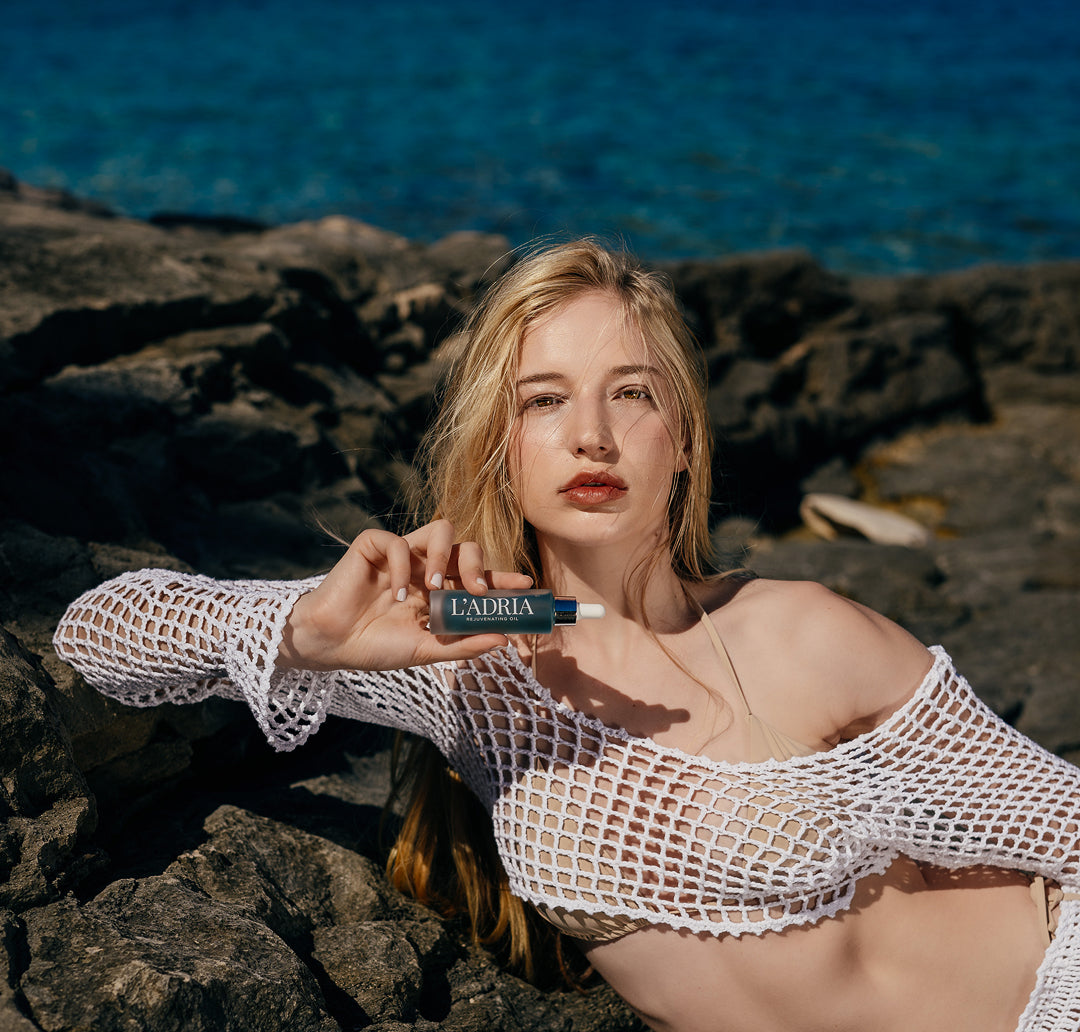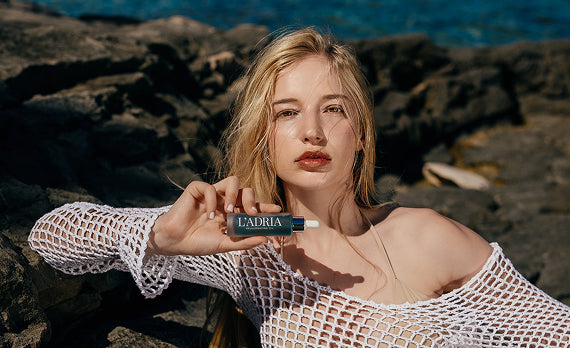Mediterranean diet and your skin - a perfect combination!
10/05/2023

Diet can have both positive and negative effects on your skin - just remember that tell-tale pimple after enjoying sweets or an abundance of mayonnaise. For this reason, it is not surprising that most skin care enthusiasts choose their menu carefully, and everyone's favorite is precisely the Mediterranean diet. This type of diet, characteristic of our climate, according to nutritional knowledge, represents one of the highest quality forms of nutrition today. It is based on a high intake of nutrients thanks to olive oil, as the main source of fats, fresh fruits and vegetables, whole grains, nuts and moderate consumption of fish, meat and dairy products. With water as the main drink of choice and a Mediterranean diet, you will quickly see an improvement in your skin.
Below, find out some of the best benefits of this diet and what makes it the perfect choice for just about every skin type.
ACNE PREVENTION
Although many factors contribute to the appearance of acne, it is also known that certain types of food, such as fast food, refined sugar and dairy products, can cause or worsen acne. existing problems with acne on the skin. The Mediterranean diet focuses primarily on the opposite spectrum of foods. It is rich in foods with a low glycemic index (nuts, various vegetables, etc.), which can greatly contribute to the prevention of acne. In addition, numerous scientific studies have confirmed the negative impact of foods rich in sugar on the causes and consequences of acne (1, 2, 3), but don't worry - sugar and sweets are at the very bottom of the foods in this diet.
FOR AN EVEN AND BRIGHT SKIN
The Mediterranean diet is also rich in foods rich in vitamin C and polyphenolic compounds (berries and citrus fruits, nuts, legumes), which are known as excellent antioxidants. A diet rich in antioxidants can increase their concentration within the very cells of our body, including skin cells. This form of nutrition also provides excellent support for the inevitable cream with a protective factor from the inside in the fight against the harmful effects of UV radiation, which threatens our skin throughout the year. In addition to its antioxidant effect, vitamin C also stimulates the synthesis of collagen in the skin, which slows down the appearance of signs of aging, and helps heal wounds (4, 5, 6). When the bowl is full of fruit, our skin is happy as a whole!

FOR HEALTH AND SKIN STRENGTH
Experience has shown that the Mediterranean diet can improve microcirculation in the skin, which ensures a better supply of skin cells with nutrients necessary for their normal function (7). Our cells are real small factories that do not stop working, and with proper nutrition and the supply of all essential elements and nutrients, we help them to successfully carry out thousands of biochemical processes - for our satisfaction, but also for the overall well-being of the organism.
NO PROBLEM CONDITIONS
One of the most important elements of any proper diet is dietary fiber, which is abundant in the Mediterranean diet, and is primarily found in fruits, vegetables and whole grains. extremely favorable effect on the functioning of the intestines, regulating digestion and supporting the growth and development of the intestinal microflora. Healthy and functional intestinal microflora is crucial for good immunity, and it can help prevent acne, eczema, rosacea and many other inflammatory skin conditions (8, 9). It is not without reason that it is said that our health, like all diseases, begins precisely in the intestines.
Take care of yourself completely - inside and out!
1. Paoli, A., et al. "Nutrition and acne: therapeutic potential of ketogenic diets." Skin pharmacology and physiology 25.3 (2012): 111-117.
2. Smith, Robyn N., et al. "The effect of a high-protein, low glycemic-load diet versus a conventional, high glycemic-load diet on biochemical parameters associated with acne vulgaris: A randomized, investigator-masked, controlled trial." Journal of the American Academy of Dermatology 57.2 (2007): 247-256.
3. Smith, Robyn, et al. "A pilot study to determine the short-term effects of a low glycemic load diet on hormonal markers of acne: a nonrandomized, parallel, controlled feeding trial." Molecular nutrition & food research 52.6 (2008): 718-726.
4. Gegotek, A. "Ambro zewicz, E.; Jastrz ab, A.; Jarocka-Karpowicz, I.; Skrzydlewska, E. Rutin and ascorbic acid cooperation in antioxidant and antiapoptotic effect on human skin keratinocytes and fibroblasts exposed to UVA and UVB radiation." Arch. Dermatol. Res 311 (2019): 203-219.
5. Pierfrancesco, Morganti, Fabrizi Giuseppe, and Cesare Bruno. "Protective effects of oral antioxidants on skin and eye function." SKINmed: Dermatology for the Clinician 3.6 (2004): 310-316.
6. Pessoa, Ana Flávia Marçal, et al. "Oral administration of antioxidants improves skin wound healing in diabetic mice." Wound Repair and Regeneration 24.6 (2016): 981-993.
7. Klonizakis, Markos, et al. "Effects of Long-Versus Short-Term Exposure to the Mediterranean Diet on Skin Microvascular Function and Quality of Life of Healthy Adults in Greece and the UK." Nutrients 11.10 (2019): 2487.
8. Alesa, Dalal I., et al. "The role of gut microbiome in the pathogenesis of psoriasis and the therapeutic effects of probiotics." Journal of Family Medicine and Primary Care 8.11 (2019): 3496.
9. Assarsson, Malin, et al. "Significant changes in the skin microbiome in patients with chronic plaque psoriasis after treatment with narrowband ultraviolet B." Acta Dermato-Venereologica 98.3-4 (2018): 428-436.
Winter sale









